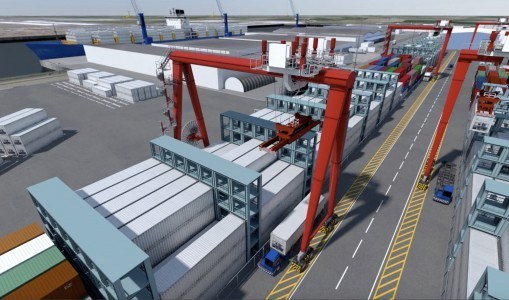Kloosterboer, a Dutch logistics service provider has invested in an automated and sustainable reefer container terminal named Kloosterboer Containerterminal Vlissingen in its location in the Dutch port of Vlissingen.
The container terminal will be operational by mid-2020 and will initially have 1,020 reefer plugs while the expectation is to process 250,000 TEU annually.
The container terminal will be equipped with four automated, electrically driven Rubber Tired Gantry (RTG) cranes. These cranes guarantee a high storage capacity. The use of these cranes will reduce the number of reach stackers in the terminal, resulting in a decrease in CO2 emissions of 800 tonnes.
Kloosterboer is the first container terminal to use this type of automatic cranes. Moreover, the container terminal is equipped with automatic, unmanned gates. The CargoCard will be used to gain access to the container terminal.
Drivers will use the card to register and identify themselves. In addition, new software systems will be used. Thanks to smart interaction between these systems, certain algorithms will be used to determine the most efficient method of storage and processing of the containers, according to Kloosterboer. The containers’ functionality and settings, such as temperature, are remotely monitored 24 hours a day, every day of the week.
Kloosterboer believes that the combination of a multi-modally accessible terminal and nearby cold stores, will allow Kloosterboer Vlissingen to directly unload incoming containers and load them in the cold store, in order to further transport them by freight truck or barge.
Possibility to expand to 1,600 reefer plugs
Kloosterboer adds that due to the increasing trend of containerisation, the use of reefer containers has increased significantly in recent years. In order to facilitate these growing container flows now and in the future, Kloosterboer is continuing to invest. The location in Vlissingen offers the possibility to expand to a storage capacity of 1,600 reefer plugs, which means in future 400,000 TEU can be processed annually.







